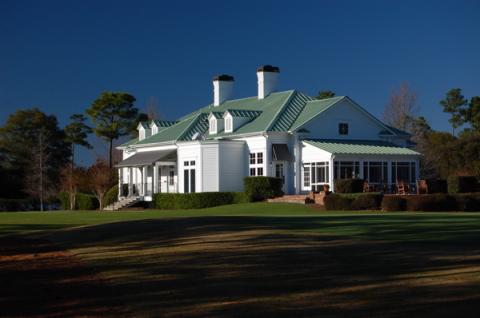I interviewed a pubic golf course operator in Massachusetts a month ago. I asked him what he charged for green fees. "Depends," he answered. "On what?" I asked. "On which of our 30 discounts they [golfers] use," he said. I stopped at another course where the owner told me, "We love [to use] discount coupons." It occured to neither of them that they, in essence, were auctioning off green fees. And that someday, someone might be auctioning off their golf course.
When a business begins to suffer lost revenues, it has a couple of choices; it can either cut costs or lower prices, or some
During the golf industry recession, which actually began before the overall economic recession, public courses have opted mostly to cut prices, which is actually the last thing they should do. Offer enough discounts and pretty soon your "standard rate" is meaningless. Although discounts may build traffic, at least for the near term, gnawing off your hindquarters to feed yourself is not a strategy for long-term survival.
"The trend of downward rates in the golf industry has been the real cause for many courses failing," said Mark Tansey, president of Palm Desert-based Sunrise Golf Inc., in a recent L.A. Times article about golf course defaults. "Too many inexperienced operators are using price as a blunt instrument to generate activity."
Private clubs are also suffering, but they have resorted more to haircuts than to cannibalization. Some have reduced their
More than 100 golf courses have closed nationwide this year, but a relative few of them are member owned. Member-owned clubs have more wiggle room in this economy than do other types of clubs. Members can opt to assess themselves increased dues for a time in order to keep maintenance standards up even as their fellow members depart. They can decide, as a body, to cut back on course maintenance until they can re-grow membership. They can reduce or eliminate initiation fees; many northern U.S. clubs do this on a seasonal basis, offering promotional membership drives during the winter and early spring months when few are thinking about golf. They can even open to the public for a day or two a week as a way to introduce the course to potential new members.

The Reserve at Litchfield Beach (SC) came close to being added to the McConnell Group's portfolio of private courses before angry former members brought suit to be paid back their equity investments. McConnell walked away from the deal.
As the number of golf courses shrink, one emerging trend is worth keeping an eye on. Private clubs that are within reasaonable drive time of each other are beginning to affiliate, offering a single membership that provides the opportunity to play at multiple private clubs. John McConnell, a software millionaire in Raleigh, NC, has stitched together a portfolio of five excellent private clubs in north central North Carolina that include The Cardinal Golf and Country Club (Pete Dye), Musgrove Mill Golf Club (Arnold Palmer), Raleigh Country Club (Donald Ross), Treyburn Country Club (Tom Fazio) and, McConnell's most recent acquisition, and probably the best of them all, the Old North State Club (Fazio) in the community of Uwharrie Point in Badin Lake, NC.
Uwharrie, which is a good 90 minutes from Charlotte and Greensboro, is located in central North Carolina.
Late last year, McConnell made a play for The Reserve at Litchfield Beach, just a mile from the Atlantic Ocean south of Myrtle Beach. The private Reserve's members had invited him to make an offer, which he did for just $1 and a promise not only to pour a few million back into the course, but also to keep the club private for 10 years. Members voted overwhelmingly to accept the offer. However, a few former members brought a lawsuit to stop the sale unless they received a refund of their equity shares (per the club's by-laws). That suit is still pending, but McConnell has reportedly walked away from the deal.
McConnell's strategy is to add a near-ocean course to his portfolio to give his Raleigh area members a place to spend a long weekend of golf by the beach and to entice new members to sign on. As more clubs face uncertain futures, golf moguls like John McConnell should find enough bargains to pad their golf course portfolios with cheap purchases. The emergence of these new private golf club empires signals a change in the industry that club owners, members and potential members should watch closely.


